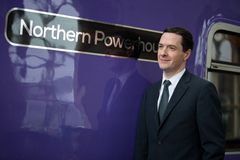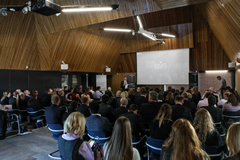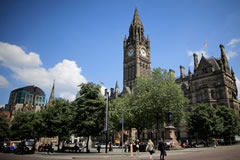The last twelve months has seen the economy slowly, if not surely, start to go in the right direction; business confidence returning; our mainstream national politicians continue to struggle to win back the trust and credibility of the voting public; Scotland remaining as part of the Union, but nationalists still pushing for separation; and on the back of that Scottish referendum a significant move towards devolution for England’s city regions.
Downtown celebrated its tenth anniversary and as ‘metro mayors’ and devolution has been an issue we have advocated for many a year, it was with some satisfaction that our decade in business coincided with this agenda being genuinely discussed and debated by political leaders from all parties.
Manchester has, once again, stolen a march on the rest of the North, with its ‘Devo Manc’ deal, but there is no reason why Lancashire can’t get its act together in the New Year and begin to map out a new governance structure for the county that will give us the new powers and additional resources that would surely be welcomed by even the most parochial of local politicians.
Despite a now tired campaign by some political leaders who still prefer to look backwards rather than to the future and are in their 99th year of calling for a split between the East of Lancashire and the rest of the county, the Manchester deal has woken most up to the fact that unity of purpose and scale is the only game in town.
West Lancashire’s flirtation with Liverpool, and the tiny fiefdoms Fylde and Chorley threatening possible UDI will surely be seen as what they are – a final hurrah from small time politicians who would be better suited to running a Parish Council.
One of few negatives in a year of many positives for Lancashire this year has been the sad and untimely reminder that at a senior political level we remain disconnected and poorly co-ordinated despite the fact that government is demanding strategic unity.
The work that Marketing Lancashire has undertaken under the leadership of Ruth Connor has demonstrated that entrepreneurial spirit, innovation and an ability to ignore the peripheral nonsense and just get on with it can lead to impressive results.
The business support initiative BOOST has been a real positive too, as has the growth not only in the traditional sectors of manufacturing, but also in the creative and digital arena, and the hospitality sector, where there has been significant investment in new build and refurbishment across the county.
I am optimistic that there will be more positives than negatives in the New Year, with a shake-up of the well run but poorly marketed Local Enterprise Partnership promised; the forging of closer links between the county’s previous warring politicians for the common good, and the private sector hopefully working more effectively together too as Downtown initiates a ‘network of networks’ for organisations to come together and offer businesses a more consistent voice.
Nonetheless, the public sector cuts agenda that has to be implemented will have a huge impact; there may be two General Elections not just one if the existing polls are to be believed; and Lancashire has yet to punch its weight sufficiently to be in George Osborne’s Devolution plan.
Whatever, the glass is most certainly half full. In 2015 Downtown will continue to discuss and debate these issues and more besides I’m sure. We will ruffle a few feathers, no doubt fall out with one or two people – but we will remain a force for good.
We are passionate about this county. We are passionate about the North of England. It is why we do what we do, making this the best business club in the region, the most relevant, the best connected and never afraid to speak our mind.
Have a fantastic Christmas, a prosperous New Year, and don’t do anything I wouldn’t do!







